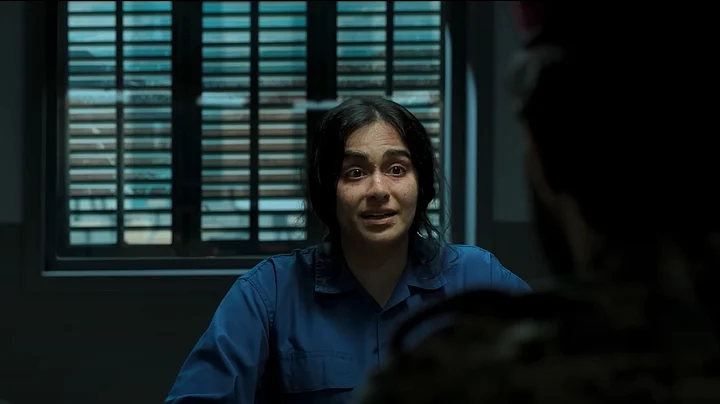It is almost painfully ironic that a film about the sinister effects of misinformation and another that changed its claims from telling the story of ‘32,000’ people to ‘3’ people have released at the same time. To nobody’s surprise, most people on the Internet are still running with the former number.
Sudipto Sen’s The Kerala Story would have you believe that the story he’s telling is the universal truth and that a truth cannot exist outside of it. The film follows Shalini (Adah Sharma) who is preparing to move out of her house to continue her medical education.
At her new hostel, she meets a Christian woman (Yogita Bihani), another Hindu woman (Siddhi Idnani), and a Muslim woman Asifa (Sonia Balani) who is henceforth accompanied with sinister background music.
After someone secretly takes pictures of the three other women, Asifa begins to indoctrinate her friends by ‘tricking’ them into joining Islam. When Asifa talks about her religion, the others are seemingly absolutely clueless even about the most basic tenets of their religion.
Why is Shalini so surprised by the concept of hell? Why do the Hindu women not know that the concept of paap and punya exists? And how is it possible that in an entire market, they believe that only three of them weren’t wearing a hijab? The film is not interested in the screenplay.
The story soon shifts to Shalini alias Fatima who is tricked into marrying a stranger after Asifa’s friend abandons her when he finds out she’s expecting their child. Fatima then goes to Afghanistan with her husband enroute to Syria to become a part of ISIS.
Every Muslim character enters to menacing background music and the word ‘love jihad’ is all but splattered across the screen. A cleric convinces his followers to drug the women and worse and the men do it. It’s painful to watch.
Atheism is equated to communism which further goes to show how much the film actually understands about ideology. Unlike Hansal Mehta’s Faraaz (also inspired by a true story and also dealt with Islamic extremism), The Kerala Story has no qualms with equating religion to extremism. There is no good Muslim, there is no willful conversions, there is no interfaith love without ulterior motives…the film would have you believe.
While the 32,000 figure (and a later 50,000 figure) in the film is completely bogus and might have been calculated in a way statistics don’t work, the stories the film is inspired by have some merit. The Kerala Story contains bytes from a woman and 2 families whose stories inspired the film but keeping the blatant Islamophobia aside, the film does an injustice to those stories as well.
A Hindu report in 2021 had told the story of the four Indian women lodged in an Afghanistan prison after having left for the ISKP with their husbands. If a filmmaker decides to tell their story, well and good; the deserve to have their stories told. But The Kerala Story’s very treatment of the stories doesn't seem genuine.
The film has a scene with a widely popularised feminist slogan ‘my body, my choice’ scraped into the prison walls but is also the same film that uses violent acts of sexual violence against women for shock value. The way the film looks at women goes from being uncomfortable to angering as scene after scene of violent assault in graphic detail flits across the screen.
Using graphic scenes of sexual violence is almost always a sign that the makers either don’t have faith in their source material or in their audience to encite or feel empathy respectively.
By the time the umpteenth whip sound in the background score rings across the theater, it becomes extremely clear that this film isn’t made for empathy or sensitivity towards an issue, it’s made to provoke and that is heartbreaking because the subjects deserve better.
The cast are pretty much able to do what their characters are expected to do (godawful Malayalam accents aside). Yogita Bihani stands out; maybe she deserves a better film.
The cherry on the cake is that the film at the end claims that a website they were directed to does not exist. A flippant Google search showed that it does.
Film is a powerful medium. And with great power comes great responsibility. The Kerala Story, written by Sen, producer Vipul Amrutlal Shah, and Suryapal Singh (no women, go figure), is irresponsible storytelling.
